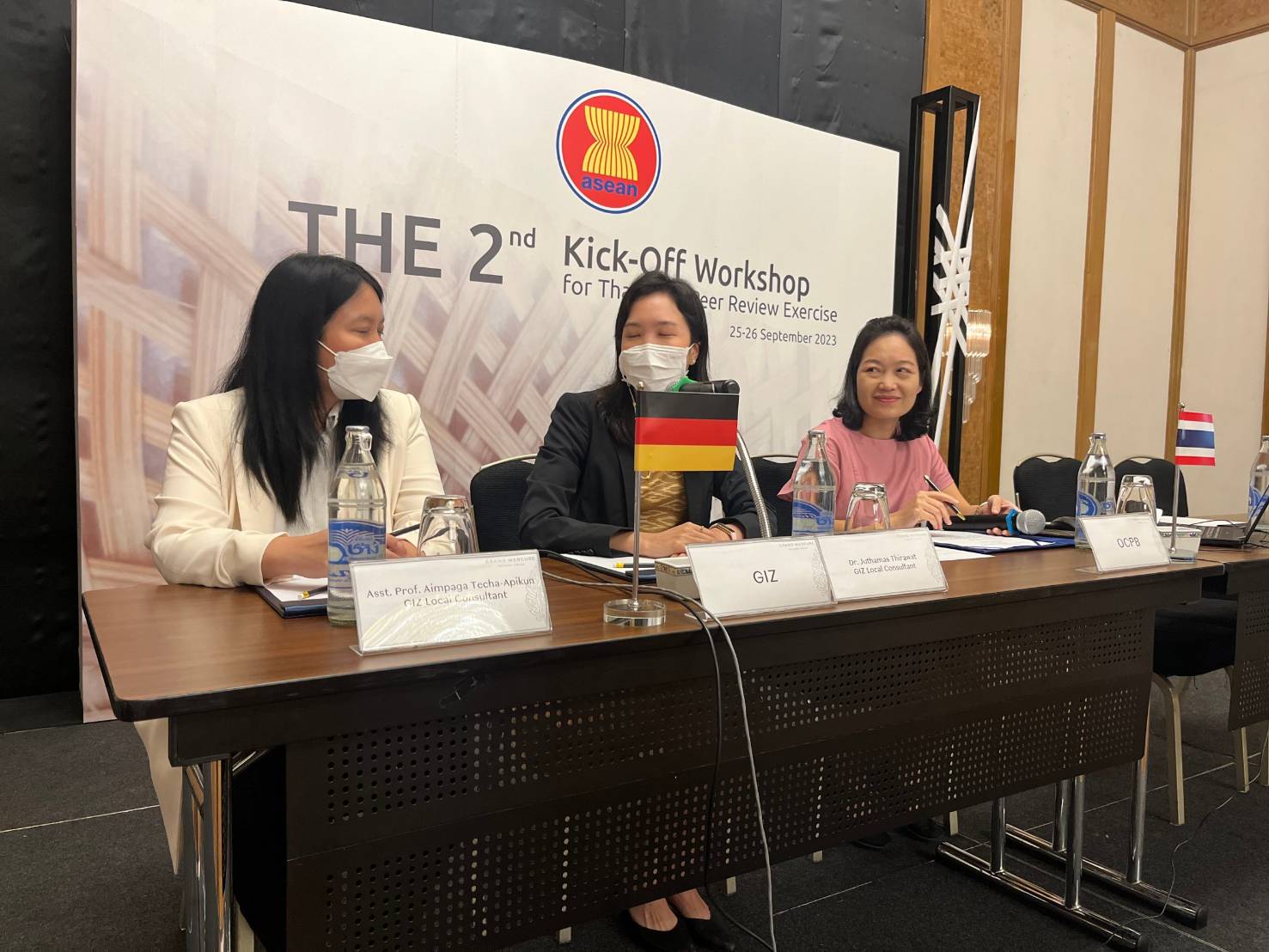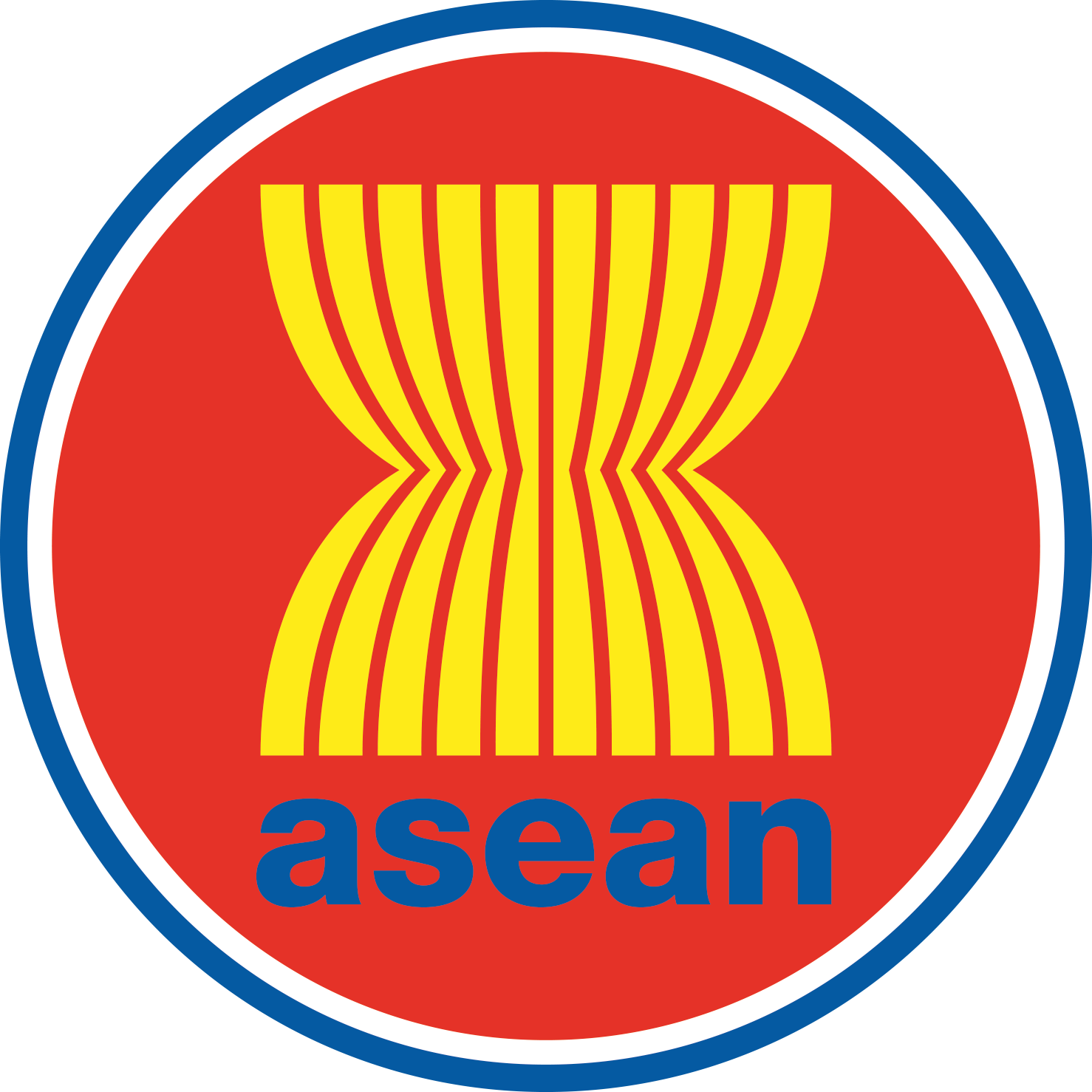The 2nd Kick-Off Workshop for Thailand’s Peer Review Exercise
Thailand , 11 October 2023

Office of the Consumer Protection Board (OCPB) Thailand successfully organized a two-day international practical hybrid meeting between September 25-26, 2566 at the Grand Mercure Atrium Hotel. There were a total of 49 participants, including 5 guest lecturers, who were a representatives from the ASEAN Secretariat, a local consultants from GIZ, Ms. Wimonrat Rukkhaworakul Teriyapirom, Dr. Juthamas Thirawat, and Dr. Aimphaka Techa-aphaikun
The meeting on September 25, 2566, involved listening to the proposals from the ASEAN Secretariat regarding the guidelines for evaluating the review of laws and policies at the ASEAN level. An Experts from Malaysia made three suggestions, which were as follows:
- Requesting OCPB to consider adding "Greenwashing" and "Dark Patterns" as topics for legal evaluation.
- Asking OCPB to gather additional information on cases of copyright infringement during the sale of products through online channels, due to widespread and covert violations of intellectual property rights.
- Recommending OCPB to formulate proposals for the development of E-labeling.
During the meeting, the Thai delegation received these proposals and planned to further discuss them on September 26, 2566.
On September 26, 2566, the Thai delegation engaged in discussions regarding the proposals from ASEAN and Malaysia. The representatives who provided input during these discussions included:
- A representative from the Office of the Food and Drug Administration.
- A representative from the Thai Industrial Standards Institute.
- A representative from the Office of the Personal Data Protection Committee.
- A representative from the Office of the National Economic and Social Development Board.
- A representative from the Office of the National Broadcasting and Telecommunications Commission.
- A representative from the Department of Intellectual Property.
- A representative from the Office of the State Enterprise Policy Office.
- A representative from the Office of the Consumer Protection Board.
During the discussions, the following opinions were expressed:
In the case of Greenwashing, it involves presenting products or services as environmentally friendly or "green," when in reality they may not meet the environmental claims made on their labels or in their advertising. The relevant agencies are included the Office of the State Enterprise Policy Office, the Office of the National Economic and Social Development Board, and the Thailand Environmental Institute.
Regarding the case of Dark Patterns, it refers to the practice of designing website interfaces to deceive or mislead users, often by obscuring or manipulating information to create a false understanding or coerce users into taking actions they may not want to, such as clicking on ads, unnecessary sign-ups, or forced email registrations with no option to unsubscribe. The relevant agencies are included the Office of the Personal Data Protection Committee and the Ministry of Digital Economy and Society.
The issue of products infringing on intellectual property rights under intellectual property law directly concerns the Department of Intellectual Property. A representative from the Department of Intellectual Property stated that they would provide further information at a later time.
Regarding the import of unsafe products, this directly relates to the Office of the Consumer Protection Committee and the Food and Drug Administration. The Office of the Food and Drug Committee and the Office of Industrial Product Standards were mentioned as relevant agencies in this context.
In the case of E-labeling, the concept involves creating product labels in barcode format. The Office of the Food and Drug Committee mentioned that they are currently considering which products can be labeled using E-labeling. On the other hand, the National Broadcasting and Telecommunications Commission confirmed that E-labeling has already been implemented for two telecommunications products. The Office of the Consumer Protection Committee expressed their opinion that according to the Consumer Protection Act of 1979, physical labels are required and E-labeling may require further legal considerations based on the type of product.
A follow-up practical meeting was scheduled for October 6, 2566, from 10:00 to 12:00, to continue discussions online.


